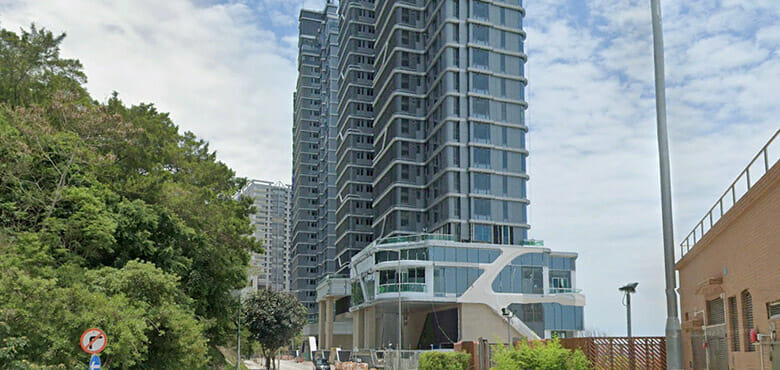
KWG is hoping to pay off the bonds early via sales of its Ap Lei Chau project in Hong Kong
KWG Group Holdings this week became the latest Chinese developer to restructure its offshore bonds as the country’s 43rd-largest builder by contracted sales said Wednesday that it had won approval from its investors to swap $1.6 billion in notes maturing this month and next year for new debt on longer maturities.
The Guangzhou-based player won consent from investors holding 92.97 percent of the combined $900 million in notes due September 15 and September 21 for new bonds that will mature in January 2024, according to the company’s filing to Hong Kong stock exchange. KWG also secured approval from holders of 90.92 percent of the $700 million in notes due in September 2023 for new bonds that would mature in August 2024.
The deal, which marks the largest successful real estate bond swap in China this year, was arranged by JP Morgan and comes two months after the American investment bank helped Guangzhou R&F extend repayment on 10 offshore bonds totaling $5.1 billion.
“We hope this would generate a positive momentum for KWG Group with the onshore lenders and offshore bondholders, knowing that the company is trying very hard to generate liquidity,” Rita Chan, head of real estate investment banking for Asia (excluding Japan) at JP Morgan told Mingtiandi.
“I believe their stakeholders are happy that they got support from the bondholders with such a high participation rate. It does show that people trust the company in delivering cash flows – albeit it could be a bit late due to the environment,” she added.
5.5% Upfront Cash
In a proposal described as “generous” by several analysts, KWG offered holders of the 2022 notes, full repayment of the $650 million and $250 million in principal respectively, cash equal to as much as 5.5 percent of the principal to be paid after approval of the swap.

Rita Chan of JP Morgan
Bondholders who voted in favour of the transaction received an upfront payment of 5 percent of the principal, plus an incentive fee of 0.5 percent of the bond par value, according to Alan Chan, head of debt capital markets origination for Hong Kong, Taiwan, Macau and Mongolia at JP Morgan. For holders of the bond originally due next September, KWG also offered an incentive fee of 0.5 percent to encourage acceptance.
To sweeten the deal, KWG promised that, should it be able to achieve sales at a residential project on Ap Lei Chau in Hong Kong, that it would use half of any net consideration beyond $50 million for early repurchase and redemption of the new bonds.
KWG and Logan Property Holdings paid a record HK$16.86 billion (US$2.17 billion) for the waterfront residential site on Hong Kong’s Ap Lei Chau island in 2017, topping market valuations by almost 50 percent.
Delays in completion of the 50:50 joint venture condo project have significantly affected the developer’s liquidity.
“They had expected the Ap Lei Chau project to be generating cash flows at this time originally, but because of Covid and other factors it got delayed. So the maturity profile needs to be shifted largely because of that,” said Rita Chan.
The proposal put together by Chan’s team of bond doctors exceeded the 90 and 80 percent respective acceptance thresholds set for swapping the 2022 and 2023 bonds, despite having only a six day window for consideration of the proposal.
JP Morgan’s sales network reached out to 160 investors and managed to receive bondholders’ consent one day ahead of the expiration deadline, said Brian Xi, an executive director for real estate investment banking for Asia (excluding Japan) at JP Morgan.
Instalment Plan
Amortization schedules stipulated in the proposal will see the bonds repaid in installments.
The bonds originally due this month will be paid in three instalments, with 15 percent of the principal to be paid next May, 20 percent due next August, and the remaining 65 percent to be paid upon final maturity in January 2024.
The bond originally due next September will be paid in four instalments, with 5 percent of the principal due next July, 15 percent due next September, 50 percent to mature in March 2024 and the remaining 30 percent to be paid upon the final maturity in August 2024.
The developer also adjusted boosted the coupon rate for the bond originally maturing September 21 to 6 percent from 5.2 percent. The coupon rates for the other two notes remain unchanged.
KWG is one of numerous Chinese developers that have been pushing out debt deadlines in efforts to avoid default. Missed payments on offshore debt have surged to record levels this year, nearly all by property firms, as a liquidity crisis has gripped the sector amid slumping sales.
With contracted sales declining by 51.3 percent in the January to August period to 34.9 billion yuan ($5 billion), KWG has been scrambling to raise cash through asset disposal. In July, it sold a 50 percent stake in a residential project in Hong Kong’s Kai Tak area to its partner Longfor Group for HK$1.3 billion.
While the bond swap pushes out near-term debt maturities for KWG, the developer has six additional offshore bonds totaling $2.46 billion, which will mature from 2024 through 2027.
Having worked on debt restructuring deals for companies such as Guangzhou R&F and KWG Group, JP Morgan’s Chan stresses that developers taking a holistic approach to resolving offshore and onshore debt in tandem are more likely to win the trust of investors and be able reach restructuring agreements.
“It’s almost like a virtuous circle that you go into…Now there’s much more of an aspect to look at each other – how can we make this work and help the company actually survive through this, which is very encouraging to see…The regulators probably would also see that this is moving in a positive direction,” Chan noted.
Leave a Reply